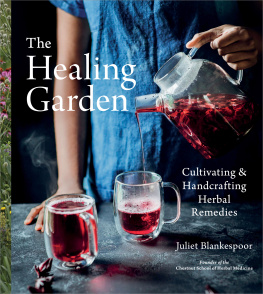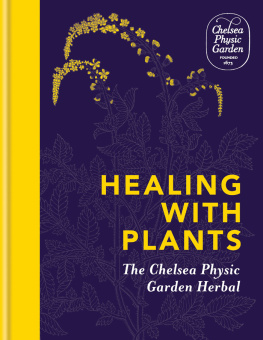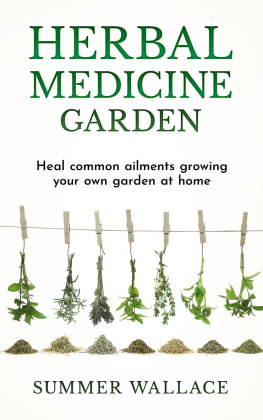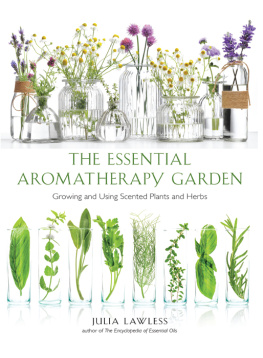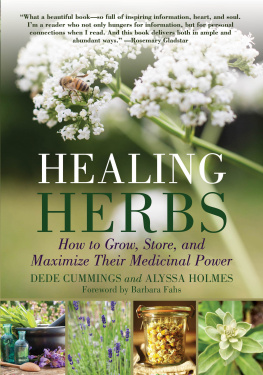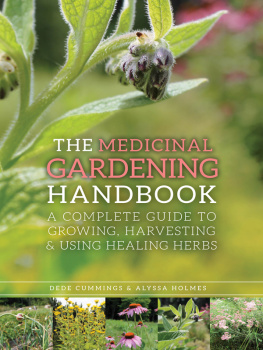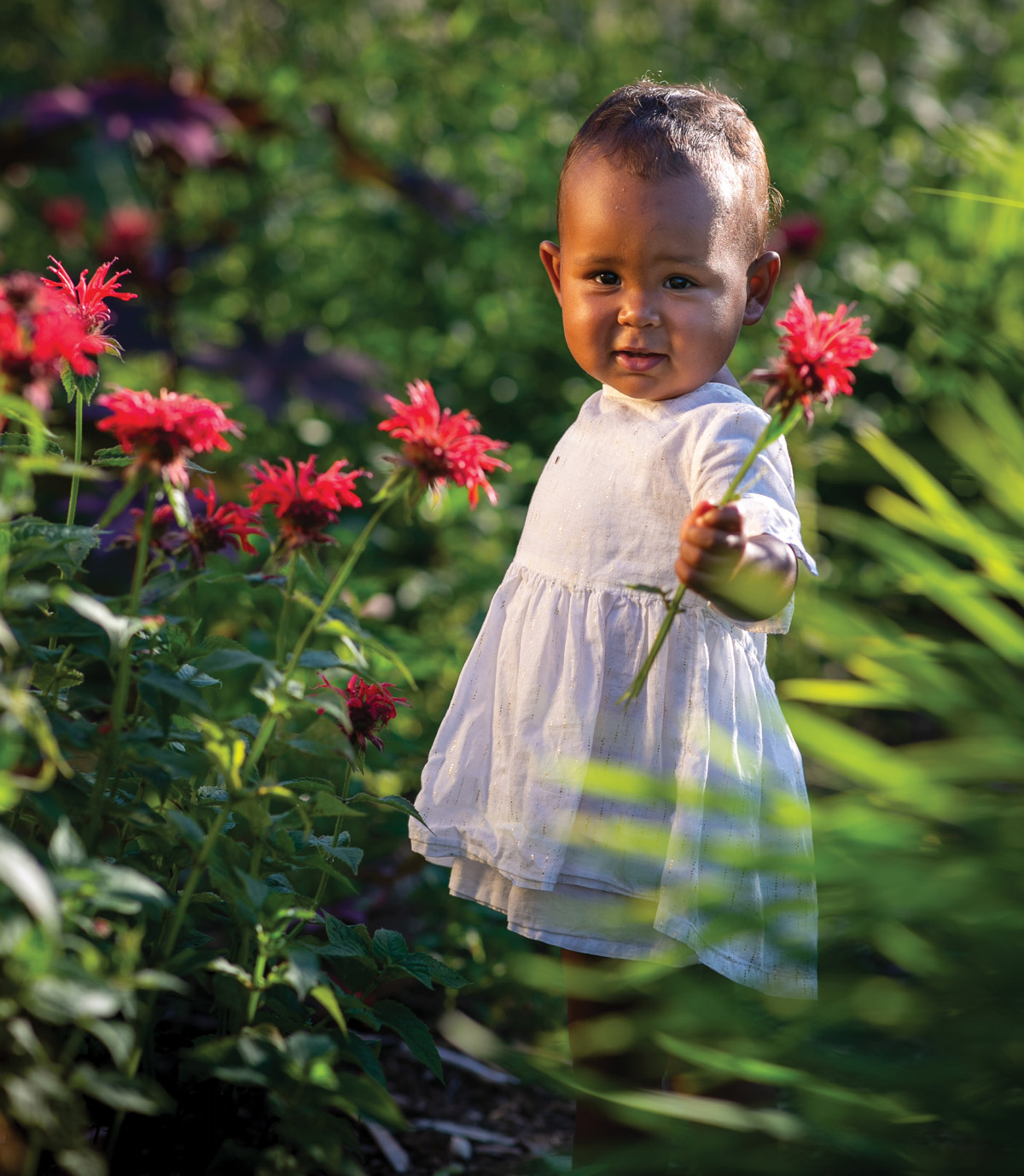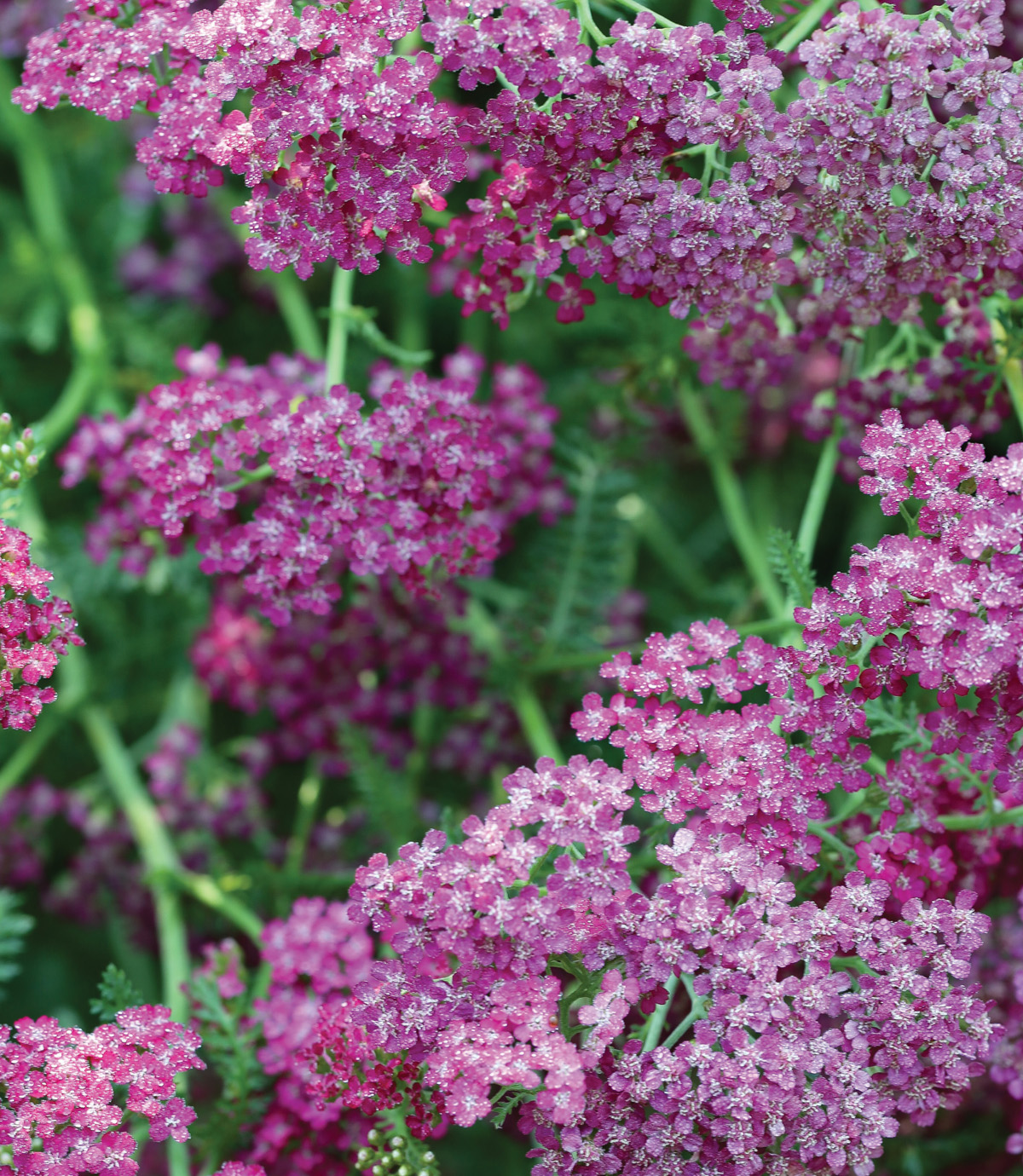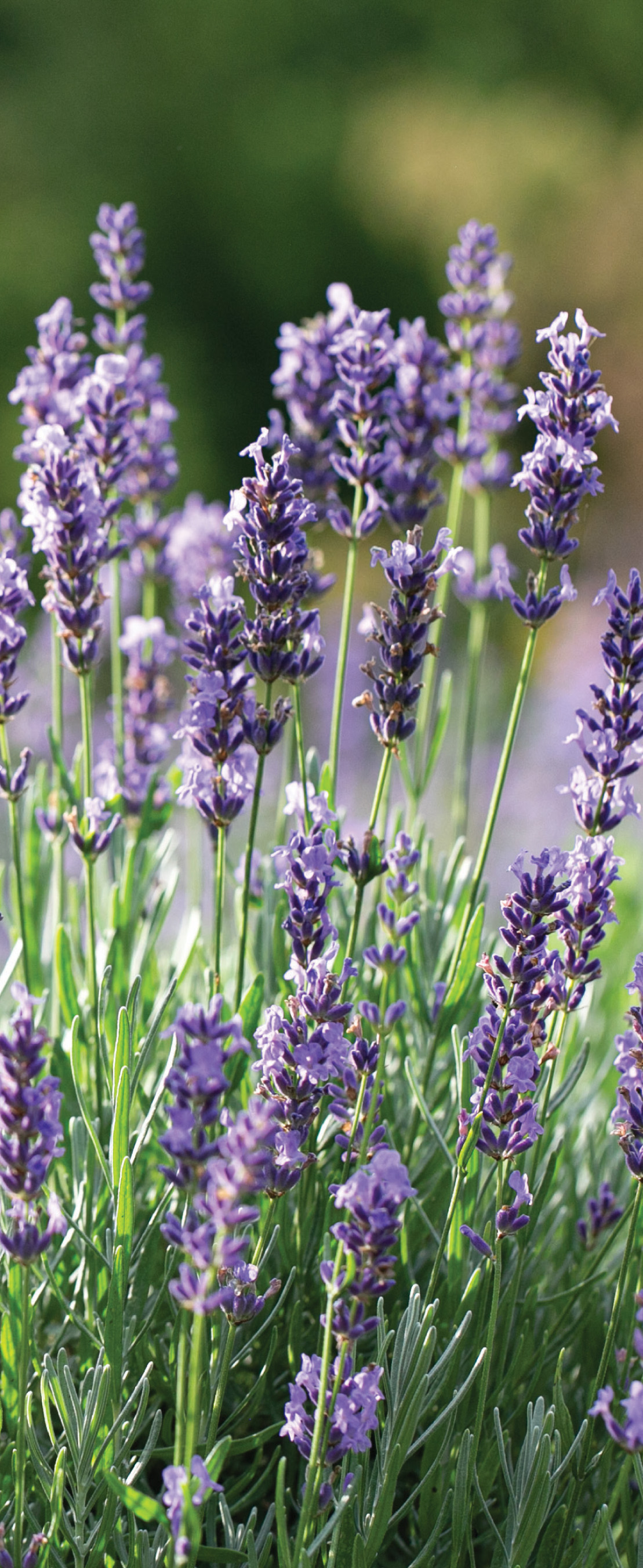Contents
Guide
Precious plant-tenders,
May you know in your marrow
the joy of belonging, of home,
a kinship with all of life.
Contents
Being naturalized to place means to live as if this is the land that feeds you, as if these are the streams from which you drink, that build your body and fill your spirit.... To become naturalized is to live as if your childrens future matters, to take care of the land as if our lives and the lives of all our relatives depend on it. Because they do.
~Robin Wall Kimmerer, Braiding Sweetgrass: Indigenous Wisdom, Scientific Knowledge and the Teachings of Plants
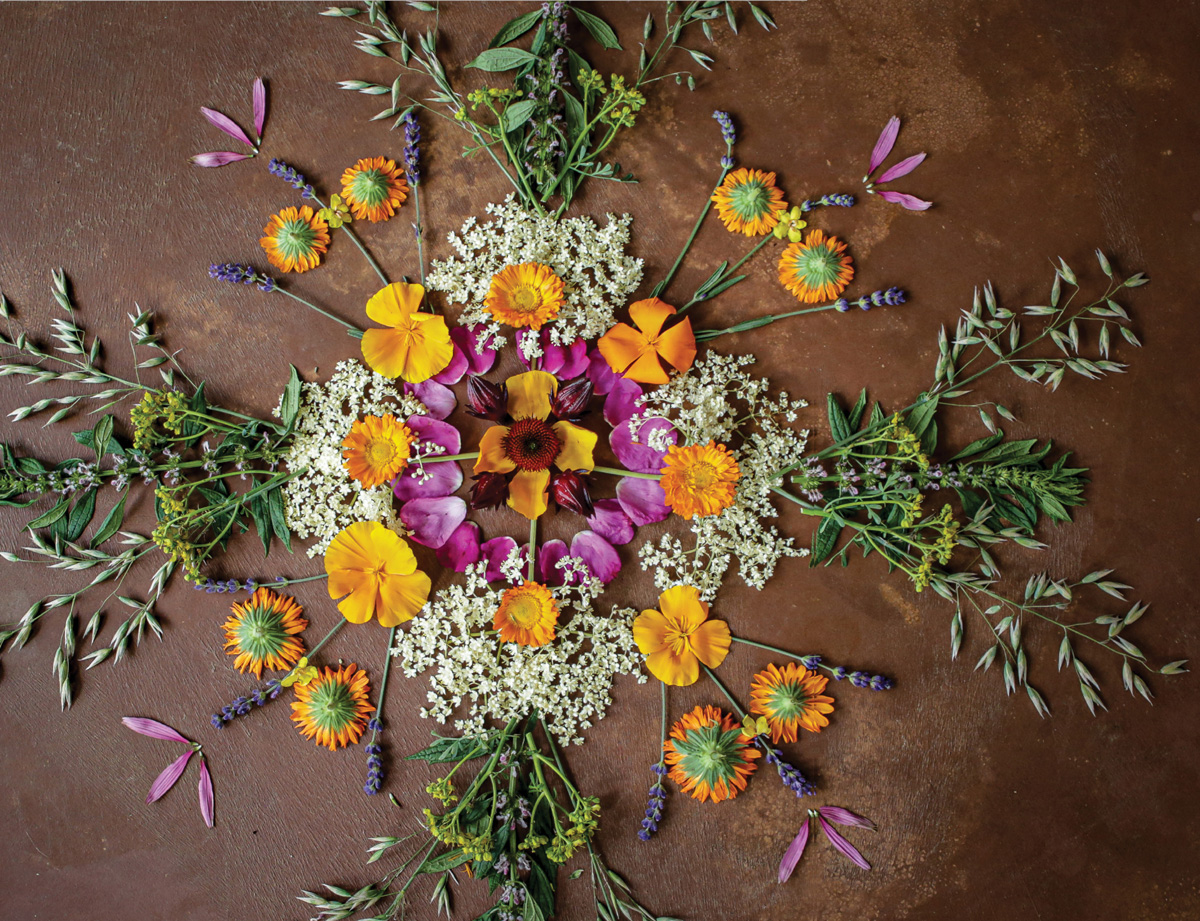
Gardening is medicine for our spirit, mind, and body. When we grow a garden that is in tune with the elements and the earths ebbs and flows, were cultivating more than meets the eye. We are, in essence, cultivating medicine. Medicine travels in many guises: it can take the form of connectionto our bodies, to the earth, to the healing plants. This rootedness is potent, a remedy for our times. Herb gardening is profoundly empowering: by nurturing a plant from seed to harvest and ultimately into a healing remedy, were practicing ancient skills that all our ancestors once knew. Of course, were also growing medicine in the literal sense. Herbs are the most ancient form of medicine and their usefulness persists into modern life. Medicine abounds, underfoot and towering abovehealing plants range from lowly weeds to shrubs and trees. No matter where you live, there is an abundance of botanical medicine you can easily grow in your garden. Herbal medicine provides us with a natural and safe way to address everyday health challenges and minor upsets, along with plenty of tools for promoting vitality and overall wellnessit truly shines as preventative medicine.
Preparing homemade remedies from organic, homegrown herbs is one way we can tread more lightly on the earth. By that token, were cultivating medicine for the earth as well as for ourselves. Our gardens beckon us outdoors and keep us moving, two vital foundations of happiness and wellness. Herbalism also provides a framework for gaining intimacy with our bodies and with wellness. When we grow and harvest our own medicine, the remedy is full spectrumit contains the intangible and unquantifiable medicine of kinship.
Cultivating a Relationship with Healing Plants
In our modern era, its easy to feel profoundly disconnected not only from nature but also from our ancestors, sustenance, and medicine. The antidote to this cultural chasm is a connection to place. This connection is a web with pulsing threads fastening you to your neighbors, garden, medicine, ancestors, and heritage, which in turn resurrects a sense of belonginga deep knowing that you have a rightful place in the world. Imagine yourself as a bright patch of cloth sewn into a vibrant quilt that stretches far into the past and deep into the future.
Befriending living plants keeps me close to my roots, literally and figuratively. When I want to know more about a plant, I bring it into the garden. From there, we slowly begin the dance of planthuman reciprocity, a friendship of sorts, born of companionable silence throughout the seasons. We become acquainted as I weed around the plants roots, pick insects from its leaves, and share water with it during dry spells. This communion ultimately brings me to a deep-seated and intimate knowledge of the medicine itself.
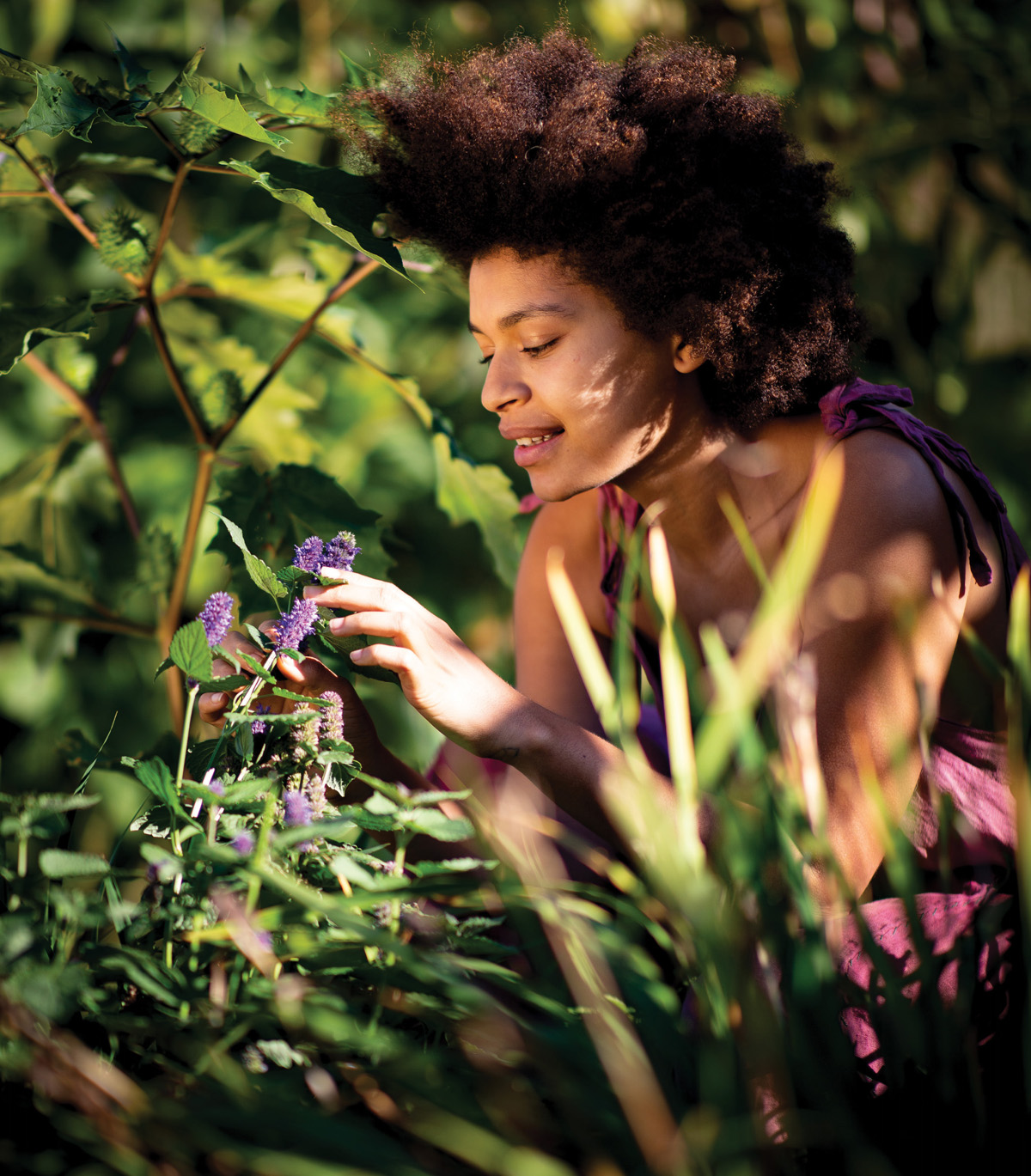
The more connected we are to our remedies as actual plantsliving beings with their own life cycles and personalitiesthe more likely we are to understand their medicine, including their healing qualities.
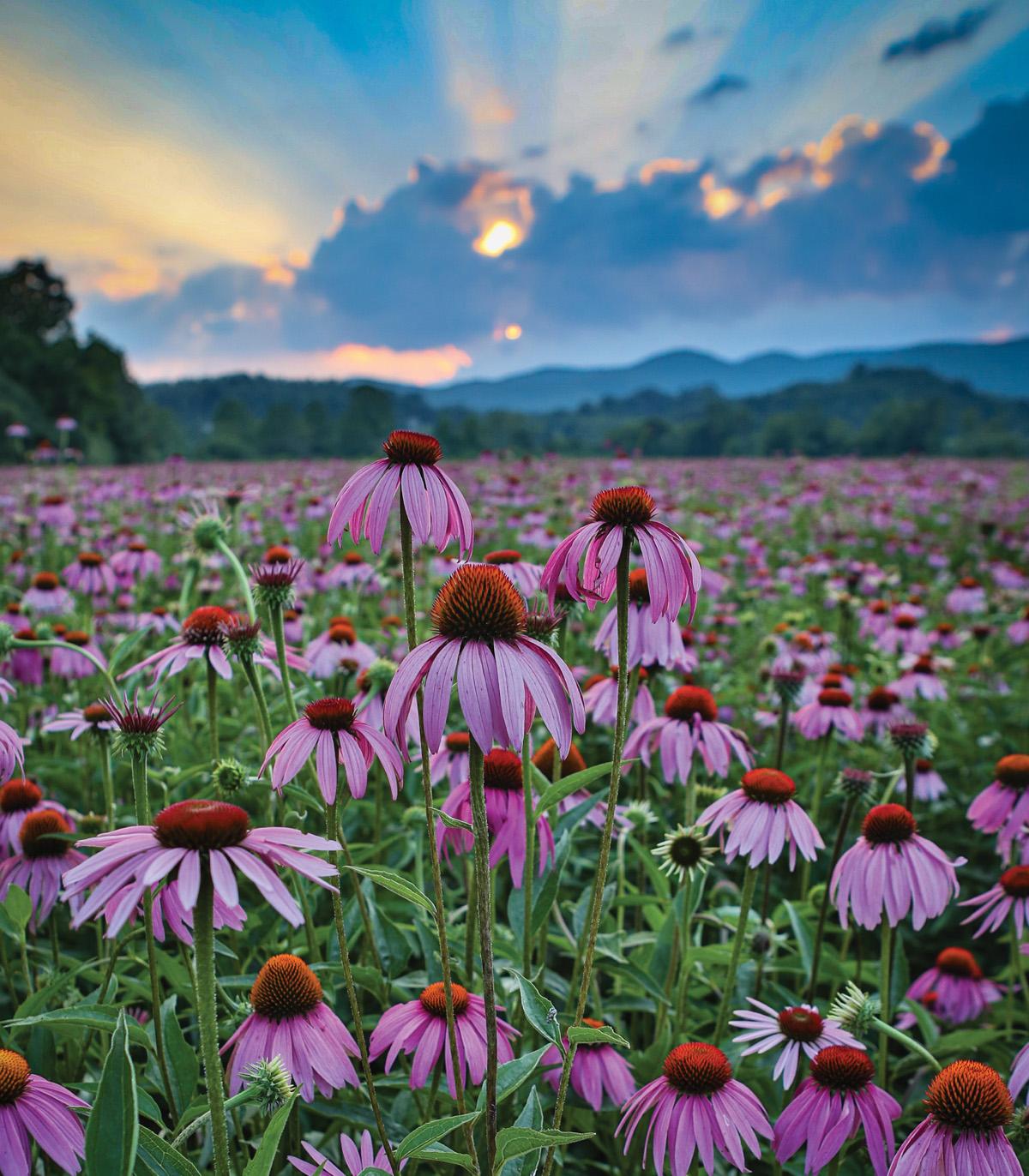
Field of purple coneflower (Echinacea purpurea) growing at Gaia Herbs organic herb farm
Medicine for the Earth
An increasing number of people in industrialized nations are using medicinal herbs for their health and well-being. Nearly one-third of Americans use medicinal herbs, and the World Health Organization estimates that 80 percent of people worldwide continue to rely on herbs as their primary form of health care. According to a 2017 study published in the American Botanical Councils peer-reviewed journal HerbalGram, consumer spending on herbal dietary supplements in the United States has surpassed $8 billion annually. Most of that medicine is being grown overseas, often in countries with appalling labor and agricultural practices. Just as locally grown food is key to long-term sustainability, so is locally grown medicine. By organically growing your own herbs and preparing medicine at home, youre reducing fossil fuel use by cutting out transportation and packaging. As long as youre vigilant about plant identification and cleanliness in medicine making, homegrown medicine also ensures that you have the correct herb and that your medicine hasnt been adulterated or contaminated, issues that sometimes occur with commercially sourced herbs.
My Dance with the Plants
My infatuation with herbal medicine started with college botany classes. Stamens, stigmas, and anthers were my first dates in what would become a lifelong love affair with plants. Today, I plan my vacations around botanical gardens, and I keep random pieces of colorful bark in my pocket in case I need an icebreaker in an awkward social situation. Three decades into this journey as a planthuman matchmaker, Ive owned just about every type of herbal business you can imagine: an herbal nursery, a medicinal products business, a clinical practice, and now an online herbal school specializing in bioregional, hands-on herbalism.
But I wasnt always so inclined. As a child, I was an introverted bookworm who loved the solitude and magical freedom of the woods but had zero interest in plants. I was very close to my grandpa Joe (Joachim Naphtali Simon), an eccentric intellectual who was a vegetable gardener and a naturalist. On his own initiative, grandpa Joe labeled all the treeswith their common and scientific namesthat grew on the path that led home from our school so all the kids could learn them. My Dutch dadalso an avid gardenerand my grandpa both tried to rope me into gardening, to no avail.
Lucky for me, the seeds they planted sprouted when I left home and first learned about the environmental crisis, organic gardening, and plant medicine. I suddenly wanted to learn everything I could about plants. My conversion resulted in complete botanical bewitchment. I built my first gardena monumental flop on all counts but one that nonetheless filled me with pride and joy. This burgeoning love of plants was my saving grace: my passion for herbs blossomed at a low point in my life, when I was consumed with self-doubt and felt lost. My kinship with plants fills me with connection, purpose, and belonging. I hope that I can share some of that beauty with you in the pages of this book.

